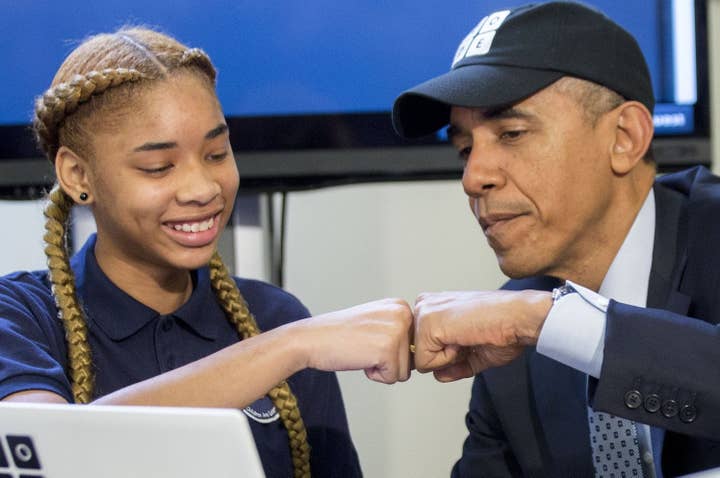Obama: Coding should be taught alongside the ABCs
"It's got to be everybody. Everybody's got to learn how to code early"
Barack Obama, the President of the United States, has reiterated the value of ubiquitous STEM education, comparing learning to code to learning the alphabet in terms of its importance to the future of the country.
Speaking to Re/Code at the White House Summit on Cyber Security and Consumer Protection, President Obama expressed concern that US tech industries could lose ground to other countries if "good choices" weren't made around STEM education.
"STEM education, huge priority," he said. "Homegrown - we've got to have our kids in math and science, and it can't just be a handful of kids. It's got to be everybody. Everybody's got to learn how to code early.
"Under-represented groups, African Americans, Latinos. We've got to get those kids tapped in"
"Part of what you want to do is introduce this with the ABCs and the colors. And particularly, focusing on girls' participation - math, science, technology - early is important. Under-represented groups, African Americans, Latinos. We've got to get those kids tapped in. That's the largest-growing part of our population."
Obama highlighted current teaching methods in the school system as a particular problem, with many kids - and especially girls - "drifting away" from STEM subjects due to a lack of interest. The President has discussed this issue in the past, pointing to games as a possible tool for making education more engaging for young students.
"We don't lift up models of them being successful in STEM," he said. "Somebody has talked about the degree to which we very rarely see portrayed on television - female engineers. We have to lift that stuff up."
Obama also addressed the "urgent need" for immigration reform, in order to increase the available talent pool for the tech industries and prevent bright students from being forced to leave the country. This specific issue has been relevant to the CEOs of the biggest American tech companies for several years, with 100 of them signing a letter calling for change back in March 2013.
"We have been pushing this hard in Congress. So far, Congress has blocked it," Obama said. "There were some areas where I could help to reduce some of the backlog, some of the bureaucracy, [to] make it somewhat easier for talented foreign students to operate here. But we haven't gone far enough, and the legislation is what's going to be required.
"So we've got to keep on pushing on that. You know, overall, though, the good news is that the ecosystem here is so far ahead of anywhere else. There's so much talent, so much brain power, so much financing."

